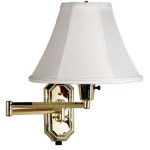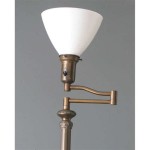How to Adjust Monitor Arm for Optimal Comfort and Productivity
Adjusting a monitor arm may seem like a mundane task, but it's crucial for maintaining a comfortable and ergonomic workspace. An improperly positioned monitor can lead to neck strain, eye fatigue, and other health issues.
Here's a comprehensive guide to adjusting your monitor arm for optimal comfort and productivity:
1. Positioning the Monitor
The height of your monitor should be such that the top of the screen is at or slightly below eye level when you're sitting upright with your shoulders relaxed. Your eyes should naturally rest at the center of the screen.
The distance between you and the monitor should also be considered. As a general rule, the distance between your eyes and the screen should be about 20-28 inches (50-70 cm).
Tilt and swivel the monitor to adjust the angle and position the screen for optimal viewing comfort. You want to minimize glare and reflections and ensure you can see the entire screen clearly without straining your neck.
2. Adjusting the Arm
The arm of the monitor stand should be positioned to provide adequate support and flexibility. The arm should be able to extend and retract, allowing you to move the monitor closer or farther away as needed.
Adjust the tension of the arm so that it can hold the monitor in place securely but allows you to move it smoothly without excessive force.
Consider the range of motion provided by the arm. It should allow you to position the monitor to different heights, angles, and positions to accommodate your work preferences and viewing tasks.
3. Cable Management
Neatly managing the cables connected to your monitor is essential for a clean and organized workspace. Utilize the cable management features of the monitor arm to hide or route the cables discreetly.
Bundling the cables together and securing them to the arm with cable ties or Velcro straps helps prevent tangles and improves aesthetics.
4. Ergonomic Considerations
When adjusting your monitor arm, it's essential to prioritize ergonomics. Ensure that the position of the monitor supports a neutral posture with your neck, shoulders, and wrists in a comfortable position.
Consider the length and height of your desk, as well as the height of your chair, to create an ergonomic setup. If necessary, use a footrest or adjust the height of your chair to ensure your feet rest flat on the floor.
5. Regular Adjustments
As your work habits and preferences change, you may need to adjust your monitor arm periodically. Regularly assess your posture and make necessary adjustments to ensure continued comfort and productivity.
Regular adjustments help prevent muscle strain and fatigue, enhancing your overall well-being and performance at work.

5 Tips How To Adjust Your Monitor Arm Ergodirect Blog

Monitor Arm Adjustment Instructions Vari

Monitor Arm Adjustment Instructions Vari

How To Adjust Your Monitor Arm For A Comfortable Posture And Healthy Happy Eyes Kensington

How To Balance Your Monitor Arm Human Solution

Monitor Arm Adjustment Instructions Vari

Monitor Arm Adjustment Instructions Vari

Monitor Arm Adjustment Instructions Vari

Computer Monitor Arms All You Need To Know Choose The Right One Kensington

Do Not Buy A Monitor Arm Until You Read This








